We are working with the Saskatchewan chapter of Pro Bono Students Canada (PBSC) to offer law students a chance to develop their legal skills, love for environmental law, and an appreciation for pro bono work.
For more information on PBSC Usask, click here.

Year 3: 2020-2021

Christine Zhang
1st Year Law Student at the University of Saskatchewan, College of Law
Can you tell us about yourself?
I grew up in Sudbury, Ontario. I did part of my undergraduate degree at McGill University and finished it at Laurentian University. I graduated with a Bachelor of Arts in English Literature (with a minor in history) in 2017. Before law school, I worked as a digital alliances project assistant at an archives, as a library assistant, and as a tutor.
In addition to the environment, I’m also very passionate about music and drawing.
Why did you join the SKAEL PBSC project?
From a young age, I have been very interested and concerned about environmental issues. My legal aspirations have never been set in stone, but I always knew I wanted to work in an area that can help society at large, such as environmental law. Accordingly, SKAEL was my first choice among all the PBSC projects. I wanted to learn about the law as it relates to environmental protection, as well as people’s legal obligations with respect to the environment.
Who is your environmental role model?
My environmental role model is Al Gore. I first heard about him when I watched the documentary An Inconvenient Truth, which made me interested in environmental issues.
What are some environmental actions we should be doing more often?
Since I became vegan over 5 years ago, I’ve learned so much about the harmful environmental effects of factory farming. Thus, I believe one of the best things people can do to help the environment is reduce their consumption of animal products. I also think people should reduce their use of plastic as much as possible. Because of the world we currently live in, it may be hard for most people to completely eliminate it, so my motto is “as far as is possible and practicable”; for example, I think it is completely practicable for people to use reusable grocery bags instead of plastic ones.
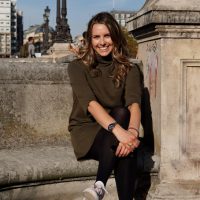
Natalie Gillespie
2nd year LAW STUDENT AT THE UNIVERSITY OF SASKATCHEWAN, COLLEGE OF LAW
Can you tell us about yourself?
I am a second year law student at the University of Saskatchewan. Prior to law school I completed my BComm at the University of Calgary. I was born and raised in the small mountain town of Canmore, Alberta.
Why did you join the SKAEL PBSC project?
Who is your environmental role model?
My environmental role model is Yvon Chouinard because he has successfully integrated his environmental values into his business. Not only does he do this through sustainable business practices but also by highlighting important and relevant environment issues.
What are some environmental actions we should be doing more often?
I think small changes make a big difference. Whether that is taking the time to recycle and compost, eating more sustainable foods or limiting fast fashion, I think all these actions add up and are easy to implement!
Year 2: 2019-2020 year
Students will follow developments in Canadian environmental law particularly as they pertain to Saskatchewan. This will include looking into recent cases, new legislation, and any social developments. Students will then work together with the organization supervisor to create content for the SKAEL website.
Read about our PBSC students below:
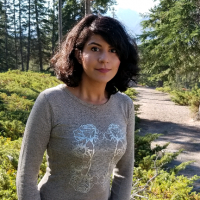
Varda Malik
1st Year Law Student at the University of Saskatchewan, College of Law
Can you tell us about yourself?
I was raised in Port Colborn, Niagra Fall and moved to Saskatoon to for my undergraduate degree. I completed both BA and BSc in Sociology/Economics and Biochemistry from University of Saskatchewan.
Why did you join the SKAEL PBSC project?
I joined the SKAEL PBSC project because I am a strong advocate for environmental policies. Throughout my undergraduate, I learnt a lot about environmental issues and topics, ranging from global warming to environmental racisms. I became interested in environmental issues and started taking little steps.
When I heard about the SKAEL PBSC project, I made sure it was my first choice because this was the topic I am more interested in. There are a lot of misunderstanding when it comes down to environmental issues and I believe that educational initiatives can help spread correct information so that others can take advocate for environment.
Who is your environmental role model?
For me, an environmental role model is that one who initiatives to produce ground breaking theories that would revolutionize the way we think about environmental issues. When Molina, and Rowland came with Rowland–Molina hypothesis, stating that chlorofluorocarbons (CFCs) was destroying the ozone layer. Even though they were initially ridiculed for their findings, their hypothesis was eventually confirmed and as a result, policies were implemented to ban the use of CFCs in aerosol spray cans in 1978.
What are some environmental actions we should be doing more often?
There are many environmental actions that we should be doing more. At individual levels, we should take every opportunity to reduce our carbon footprints such as using reusable bags and cups.
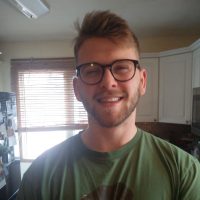
Cameron Christensen
1ST YEAR LAW STUDENT AT THE UNIVERSITY OF SASKATCHEWAN, COLLEGE OF LAW
Can you tell us about yourself?
My name is Cameron Christensen, I am a first year law student at the University of Saskatchewan. Before law school I studied Regional and Urban Planning at the U of S for two and a half years. I was born and raised in Saskatoon but I have had many opportunities for travel in Asia, the United States and western Canada.
Why did you join the SKAEL PBSC project?
Who is your environmental role model?
One environmentalist that I really resonate with is John Muir. His connection to the environment also came from his passion for hiking and being outside. His passion for hiking led him to fight for the preservation of wilderness in western United Sates. Yosemite and Sequoia National Parks are two of the most notable parks that were created as a result of his actions. John Muir and his sentiments also are in part what inspired Teddy Rosevelt to set aside millions of acres of wilderness during his presidency.
What are some environmental actions we should be doing more often?
One very significant thing everyone could do is to lower our meat intake. I am not saying that everyone should become vegetarians and vegans but reducing our reliance on a meat-based diet could go a long way in reducing our carbon footprints.
________________________________________________________________________________________________________________________________________________________________
Year 1: 2018-2019 year
For our first-ever PBSC project, the students will follow developments in Canadian environmental law particularly as they pertain to Saskatchewan. This will include looking into recent cases, new legislation, and any social developments. Students will then work together with the organization supervisor to create content for the SKAEL website.
Read about our PBSC students below:
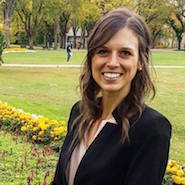
Maruska Giacchetto
1st Year Law Student at the University of Saskatchewan, College of Law
Can you tell us about yourself?
I am originally from Montreal and my mother-tongue is French. I also lived in the Bahamas, Turks and Caicos, Australia, Switzerland, Kelowna, Vancouver, Canmore and now Saskatoon.
I graduated in May 2015 with a B.Sc. from the University of British Columbia with a double major in Environmental Sciences and Economics. The environment has always been my passion and I believe that preservation of our natural resources is the foremost challenge facing our generation.
Throughout my B.Sc. and since graduating, I have worked in several areas including conservation, ecotourism, and research. These experiences have been invaluable in giving me an understanding of scientific work, the economic value of natural habitats, and the deficiencies that exist in environmental law and policy. I had the astonishing opportunity to work as a Conservation Coordinator in the Annapurna Conservation Area, Nepal, surveying and studying wildlife and flora. I also worked as a summer-intern with the Stewardship Center for British Columbia, which focuses on teaching people about environmental regulations in BC and best local practices.
As an avid long-distance runner, I love the mountains and the outdoors.
Why did you join the SKAEL PBSC project?
My true passion lies in policy and the type of work that will have more widespread effects. This is the reason I chose SKAEL as my first option with Pro-Bono Student. I am hoping that I can be useful to SKAEL and that it can be a great teaching tool in regards of environmental policy and laws for myself and for others. I sincerely believe that SKAEL will help me and others develop the knowledge and skills to advocate for the environment within the legal system.
Who is your environmental role model?
My environmental role model is Charles David Keeling who was involved in establishing the global atmospheric carbon dioxide (CO2) record (the Keeling Curve).
What are some environmental actions we should be doing more often?
I believe that the plastic grocery bags should be banned, once and for all (shamefully, I catch myself asking for one more often than I wish I should) and that people should have a plant-based diet more often than a meat-based diet.
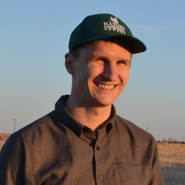
Logan Salm
2nd Year Law Student at the University of Saskatchewan, College of Law
Can you tell us about yourself?
My name is Logan Salm and I am a second year law student at the University of Saskatchewan. Before starting law school I completed a degree in English literature from the University of Regina.
I also formerly worked for the Nature Conservancy of Canada.
Why did you join the SKAEL PBSC project?
Who is your environmental role model?
Someone who I really admire in the environmental policy world is Harvey Locke. The work he has done with both the Yellowstone to Yukon(Y2Y) initiative and his new Nature Needs Half initiative. As a former lawyer, Harvey Locke has been able to bring people together to work towards large habitat conservation goals. The Y2Y initiative was a multiyear, multi stakeholder initiative to connect nature corridors from the deep north of the Canadian Yukon to Yellowstone National park in the United States. This was a massive project that required working with multiple jurisdictions of government, dozens of charities and thousands of interested parties. While still an ongoing project the Y2Y initiative started in 1993 and has been a great success with thousands of acres of protected land being connected to create habitat for Canada’s iconic animals. It is the spirit of collaboration that Harvey brings to all his projects that I admire. I hope that SKAEL can have the same values of teamwork and collaboration in future projects.
What are some environmental actions we should be doing more often?
Outside of SKAEL I like to have one small monthly goal that contributes to cutting down my environmental footprint. It is often as simple as making sure I am turning off the lights, or trying to reduce the amount I drive. It is great to have one small goal each month because after a month of concentrating on one task it starts to become habit and gets continued on after the month has completed. I am far from perfect but my making small changes each month I feel like I am getting better at cutting down my environmental impact.


